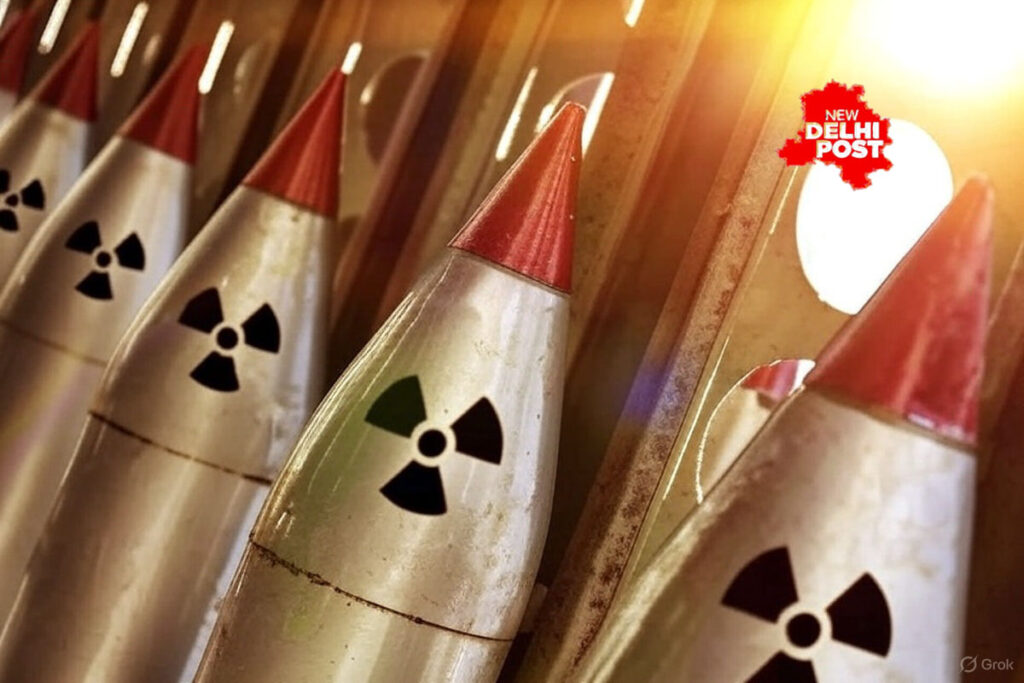Zelenskyy reports widespread attacks as Russia retaliates for Ukrainian drone strikes, raising global concerns over escalation.
Kyiv– Russia unleashed a barrage of over 400 drones and 40 missiles across “almost all of Ukraine” on June 6, 2025, in what President Volodymyr Zelenskyy described as one of the war’s most extensive assaults. The Kremlin labeled the attack retaliation for Ukraine’s drone strikes on Russian airbases, which damaged nuclear-capable bombers. Amid escalating tensions, a British colonel has reportedly warned of Russia preparing for a potential nuclear strike, though no official UK statement confirms this.
Scale of the Attack
The Russian assault targeted regions from Kyiv to western Ukraine, killing at least six and injuring 80, per Zelenskyy’s reports. Ukraine’s air defenses intercepted 406 of 452 aerial targets, but strikes hit civilian areas, igniting fires and damaging infrastructure. Russia’s Defense Ministry claimed the attack focused on Ukrainian military sites, a narrative disputed by reports of civilian casualties. Zelenskyy condemned the strikes as “deliberate terror,” noting their impact on residential zones.
Ukraine’s Provocation and Russian Retaliation
Ukraine’s “Operation Spider’s Web” targeted Russian airfields in Siberia, Murmansk, Saratov, and Ryazan, destroying or damaging up to 20 Tu-95 and Tu-22M bombers—key components of Russia’s nuclear triad. The Institute for the Study of War (ISW) noted these strikes aimed to degrade Russia’s missile-launch capabilities. Kremlin spokesperson Dmitry Peskov called Ukraine’s actions “terrorist acts,” vowing further responses. Pro-Russia commentators, including Margarita Simonyan, framed the strikes as an attack on nuclear assets, fueling calls for escalation.
Nuclear Threat Concerns
The reported British colonel’s warning, though unverified, aligns with heightened nuclear rhetoric. Russia’s nuclear doctrine permits nuclear use against existential threats, but experts like Pavel Podvig from the UN Institute for Disarmament Research argue that Ukraine’s strikes don’t meet this threshold. A 2024 SIPRI report highlights Russia’s 5,580 nuclear warheads, with 1,200 on high alert, underscoring the stakes. China’s reported opposition to nuclear escalation may restrain Russia, but NATO’s increased vigilance reflects global unease. “Russia’s nuclear saber-rattling is psychological warfare, not a clear intent to act,” said Dr. Maria Rost Rublee, a nuclear security expert.
International Reactions
Sky News analysts Dominic Waghorn and Michael Clarke dismissed claims of British involvement in Ukraine’s strikes. Waghorn criticized Russia’s “terrorism” label as hypocritical, given its civilian-targeted attacks. NATO Secretary-General Jens Stoltenberg urged de-escalation, while the IAEA emphasized monitoring Ukraine’s nuclear facilities, including Zaporizhzhia, amid ongoing risks. US officials reiterated support for Ukraine but cautioned against actions provoking Russia’s nuclear threshold.
What Lies Ahead
Russia’s planned “additional measures” and Ukraine’s defiance signal continued conflict. The ISW warns that Russia may intensify hybrid warfare, including cyberattacks, to pressure Ukraine. Meanwhile, Ukraine’s success in targeting Russia’s strategic assets boosts morale but risks further retaliation. “This war is at a dangerous inflection point,” Clarke noted, urging diplomatic efforts to prevent miscalculations.


